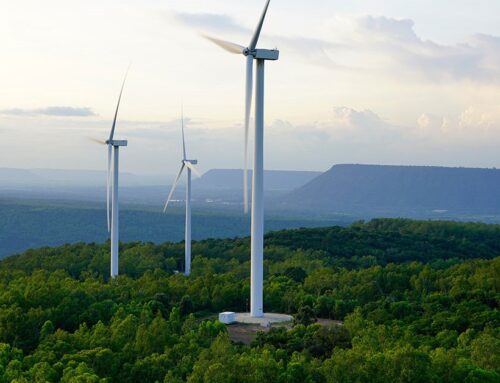Investing in VSTECS Berhad (KLSE:VSTECS) five years ago would have delivered you a 671% gain
March 28, 2025
VSTECS Berhad (KLSE:VSTECS) shareholders might be concerned after seeing the share price drop 27% in the last quarter. But that doesn’t change the fact that the returns over the last half decade have been spectacular. To be precise, the stock price is 539% higher than it was five years ago, a wonderful performance by any measure. So it might be that some shareholders are taking profits after good performance. Of course what matters most is whether the business can improve itself sustainably, thus justifying a higher price. We love happy stories like this one. The company should be really proud of that performance!
Let’s take a look at the underlying fundamentals over the longer term, and see if they’ve been consistent with shareholders returns.
To quote Buffett, ‘Ships will sail around the world but the Flat Earth Society will flourish. There will continue to be wide discrepancies between price and value in the marketplace…’ One flawed but reasonable way to assess how sentiment around a company has changed is to compare the earnings per share (EPS) with the share price.
Over half a decade, VSTECS Berhad managed to grow its earnings per share at 19% a year. This EPS growth is lower than the 45% average annual increase in the share price. This suggests that market participants hold the company in higher regard, these days. And that’s hardly shocking given the track record of growth.
You can see how EPS has changed over time in the image below (click on the chart to see the exact values).
It’s probably worth noting that the CEO is paid less than the median at similar sized companies. It’s always worth keeping an eye on CEO pay, but a more important question is whether the company will grow earnings throughout the years. Before buying or selling a stock, we always recommend a close examination of historic growth trends, available here..
As well as measuring the share price return, investors should also consider the total shareholder return (TSR). Whereas the share price return only reflects the change in the share price, the TSR includes the value of dividends (assuming they were reinvested) and the benefit of any discounted capital raising or spin-off. Arguably, the TSR gives a more comprehensive picture of the return generated by a stock. We note that for VSTECS Berhad the TSR over the last 5 years was 671%, which is better than the share price return mentioned above. The dividends paid by the company have thusly boosted the total shareholder return.
It’s nice to see that VSTECS Berhad shareholders have received a total shareholder return of 19% over the last year. Of course, that includes the dividend. However, that falls short of the 50% TSR per annum it has made for shareholders, each year, over five years. The pessimistic view would be that be that the stock has its best days behind it, but on the other hand the price might simply be moderating while the business itself continues to execute. I find it very interesting to look at share price over the long term as a proxy for business performance. But to truly gain insight, we need to consider other information, too. For instance, we’ve identified 1 warning sign for VSTECS Berhad that you should be aware of.
For those who like to find winning investments this free list of undervalued companies with recent insider purchasing, could be just the ticket.
Please note, the market returns quoted in this article reflect the market weighted average returns of stocks that currently trade on Malaysian exchanges.
Have feedback on this article? Concerned about the content? Get in touch with us directly. Alternatively, email editorial-team (at) simplywallst.com.
This article by Simply Wall St is general in nature. We provide commentary based on historical data and analyst forecasts only using an unbiased methodology and our articles are not intended to be financial advice. It does not constitute a recommendation to buy or sell any stock, and does not take account of your objectives, or your financial situation. We aim to bring you long-term focused analysis driven by fundamental data. Note that our analysis may not factor in the latest price-sensitive company announcements or qualitative material. Simply Wall St has no position in any stocks mentioned.
Terms and Privacy Policy
Search
RECENT PRESS RELEASES
Related Post




